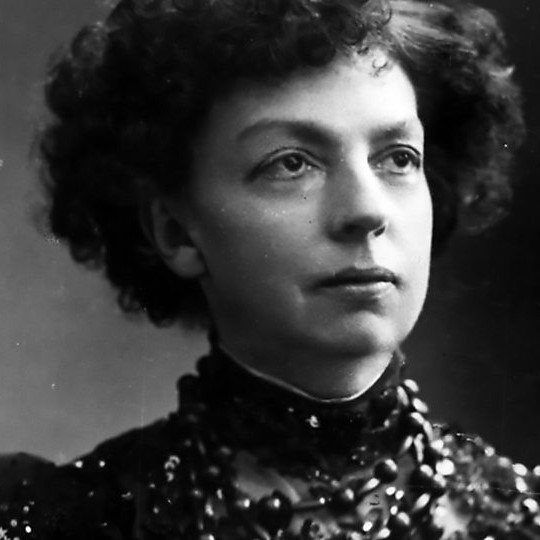
Cécile Chaminade

Cécile Louise Stéphanie Chaminade showed promise as a composer from a very young age. She wrote in a 1908 issue of The Etude magazine that “the piano was her favorite plaything and before she knew how to read correctly or write legibly she tried to express by it the naive thoughts which sang in her childish soul, and she told it to her confidences as other children tell them to their dolls.” At the age of eight, she performed one of her sacred works for Georges Bizet, a family friend. Bizet foresaw a bright future in composition for Chaminade and advised her parents to enroll her in a proper music school. Her parents, who were both musicians themselves, did not agree with Bizet; her father in particular was very outspoken about his opposition to his daughter attending the Paris Conservatory. Rather than attending the Conservatory full time, Chaminade was able to study privately with several of its world-class professors. She learned piano from Félix Le Couppey, counterpoint and harmony from M.G.A. Savard, and composition from Benjamin Godard.
When she was 18 years old, Chaminade debuted as a solo pianist and toured France and England. It was very common for her to play her own compositions during her concert performances. She enjoyed writing piano miniatures, so much that she wrote nearly 200 pieces in the genre. Some of them have such exquisite or catchy melodies that they are called “songs without words.” Early critics called her music “charmant,” noting that “There’s a feminine charm if you will about Chaminade’s music that makes it individual. I know of no other woman’s music which has just that quality and of course no mere man could possess that identical quality to which I refer…”
Chaminade’s music was incredibly popular in the United States as well as Europe. “Chaminade clubs” formed in the U.S., which were organizations devoted entirely to performing and enjoying her compositions. She made her American debut in 1908, traveling to 12 cities. She primarily performed her piano character pieces and vocal mélodies, but she also premiered her Concertstück for Piano and Orchestra with the Philadelphia Orchestra during her tour.
Outside of piano and vocal music, Chaminade also wrote a comic opera, a ballet, and a choral symphony. One of her most performed pieces today is her flute concertino. According to legend, she wrote this piece for an ex-lover that played the flute. Her goal was to make it so difficult that he would mess up in performance and embarrass himself. Fortunately for Chaminade, he actually performed it well and the audience loved it, leading to its continued popularity.
In the second half of Chaminade’s life, critics around the world turned against her. While once praised for writing feminine music, a shift in musical taste around the turn of the century meant that her music’s feminine qualities were now seen as superficial. Pieces like her Concertstück, which strayed from her typical style, were criticized for being too masculine. Chaminade was looked down upon for lacking a full Conservatory education. She started feeling insecure about her compositional abilities and found it harder to submit her music to her publisher than she had before. When she died in 1944, she was not as well-respected as she had been in her younger years, though her niece Antoinette Lorel attempted to continue promoting her music. Despite this, Chaminade leaves a legacy as the first woman composer to be selected for the Légion d’Honneur and as an independent woman who worked through adversity to perfect her craft.



